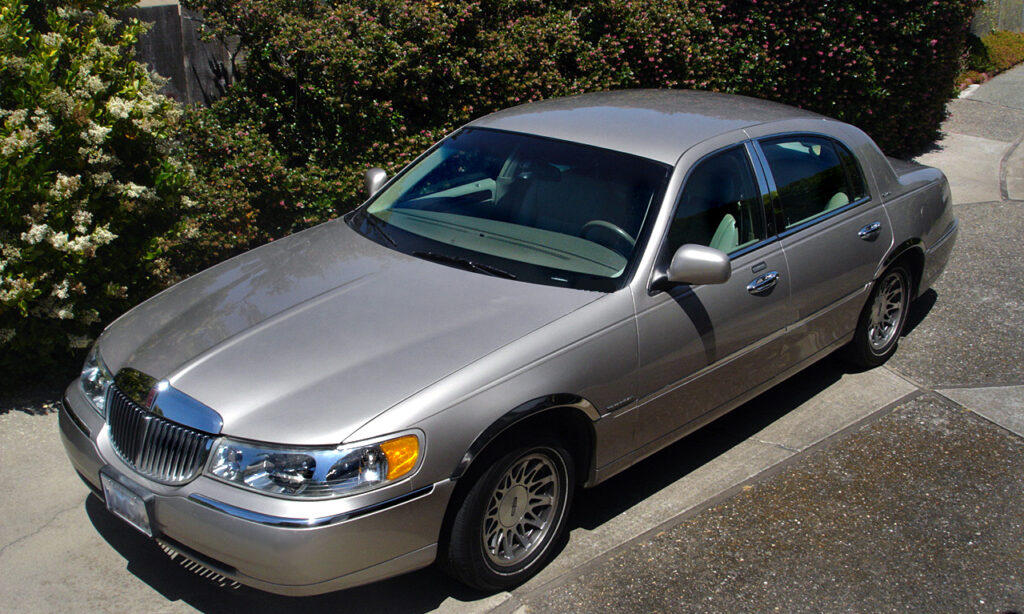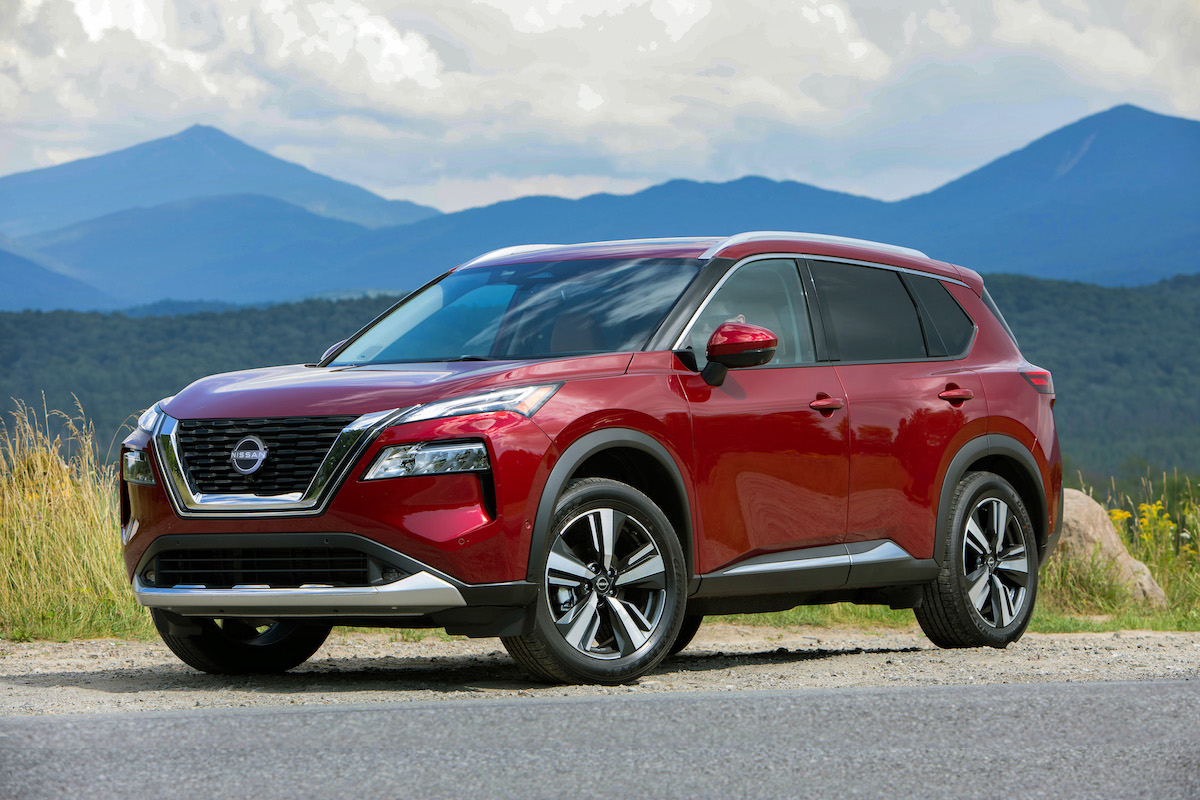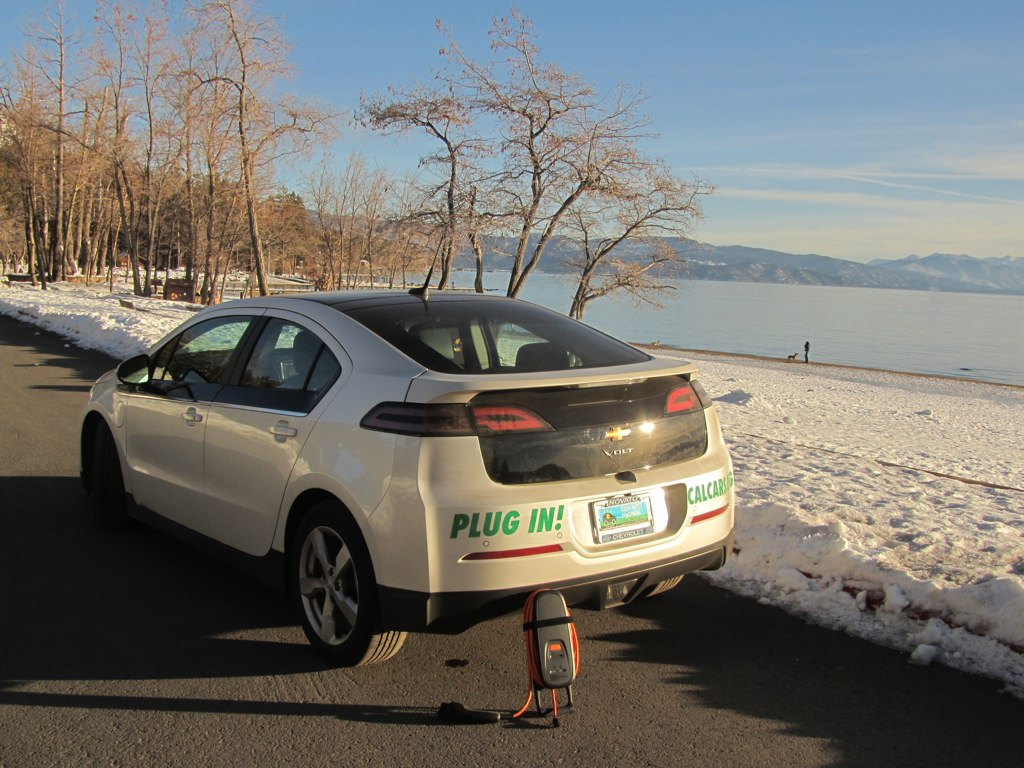
In an era defined by ubiquitous connectivity, our vehicles have quietly transformed from mere modes of transportation into sophisticated, mobile data centers. These aren’t just cars anymore; they are increasingly intelligent machines, capable of logging and transmitting an astonishing array of information about us. For many, the perception of a car remains that of a private sanctuary – a place for phone calls, personal conversations, or even emotional moments away from prying eyes. However, this deeply ingrained perception, as recent investigations reveal, no longer aligns with reality. All new cars today are, in essence, “privacy nightmares on wheels” that collect immense volumes of personal data, often without our explicit, informed consent.
This shift is not merely an inconvenience; it represents a profound challenge to our fundamental right to privacy. The scale of information collected by automakers only truly comes into view when their privacy policies are scrutinized in full – a task few consumers undertake, let alone successfully navigate, given the hundreds of pages of intentionally wordy legalese designed to bore and mislead. Typically, a brief note on the car’s screen, accompanied by a large “OK” button, is all it takes for users to unwittingly consent to their data being collected and used in ways these companies see fit. This pervasive data collection, often hidden in plain sight, underscores a critical issue that demands our immediate attention.
The implications of this technological evolution are far-reaching, affecting not just the driver but also passengers, and sometimes even nearby pedestrians. Our cars can now hear us, see us, and track us, turning a simple journey into a constant stream of monetizable data. Mozilla’s *Privacy Not Included, an organization dedicated to educating consumers about corporate data practices, has been at the forefront of this investigative effort. Their findings are stark: cars have been designated “the worst product category we have ever reviewed for privacy.” This isn’t just about what internet radio station you prefer; it’s about biometric information, precise location data, and even highly sensitive personal attributes. We’re embarking on a journey to unpack this reality, revealing the mechanisms and consequences of this unprecedented data harvest.

1. **The “Worst Product Category Ever”: Cars as Privacy Nightmares**The notion of a car as a personal, private space has been fundamentally shattered. Mozilla’s *Privacy Not Included, after extensively reviewing hundreds of products and apps since its launch in 2017, unequivocally declared connected cars to be “the worst product category we have ever reviewed for privacy.” This isn’t a casual observation; it’s a stark warning born from in-depth analysis of privacy terms across 25 car brands.
Jen Caltrider, *PNI Program Director, articulates this shift with compelling clarity: “Many people think of their car as a private space — somewhere to call your doctor, have a personal conversation with your kid on the way to school, cry your eyes out over a break-up, or drive places you might not want the world to know about. But that perception no longer matches reality.” She emphasizes that “All new cars today are privacy nightmares on wheels that collect huge amounts of personal information.” This chilling assessment sets the stage for understanding the depth of the issue.
Misha Rykov, a *PNI Researcher, further highlights the unique nature of this problem. While Mozilla has encountered industries with terrible privacy practices before, cars present a distinct challenge because their “privacy flaws impact not just the driver, but also passengers and sometimes even nearby pedestrians.” The sheer scope of data collection and its potential reach beyond the primary user makes the automotive industry a particularly troubling frontier in the ongoing battle for digital privacy. “They can hear you, see you, and track you. Today, sitting in someone’s car is a lot like handing your phone over to the auto manufacturer,” Rykov cautions.
This overarching finding underscores a systemic problem across the entire industry. It’s not just a few bad actors; it’s a pervasive lack of privacy consideration embedded in the very design and operation of modern vehicles. The connected car, while offering conveniences, has simultaneously opened up an unprecedented avenue for surveillance and data exploitation, challenging consumers’ long-held expectations of privacy within their own vehicles. The implications extend to sensitive data categories, pushing the boundaries of what consumers might reasonably expect to be private.

2. **Nissan’s Shocking Data Collection: From Sexual Activity to Genetic Data**Among the various automakers scrutinized, Nissan stands out as a particularly egregious offender. The Japanese car manufacturer openly admits in its privacy policy to collecting a shockingly wide range of personal information, extending into areas most would consider deeply private and irrelevant to the operation of a vehicle. This includes, astonishingly, data related to “ual activity,” “health diagnosis data,” and even “genetic data.” The sheer breadth of this collection is alarming, especially given that Nissan does not specify how or why such profoundly sensitive information is gathered.
What’s equally concerning is Nissan’s explicit intent to share and sell this collected data. Their privacy policy states they can share and sell consumers’ “preferences, characteristics, psychological trends, predispositions, behavior, attitudes, intelligence, abilities, and aptitudes” to a variety of third parties. These third parties are not limited to benign service providers but include data brokers and even law enforcement. The implication is clear: deeply personal insights derived from your life, potentially including highly sensitive categories, are being packaged and sold to interested buyers.
This practice raises serious ethical questions about the necessity and proportionality of data collection in the automotive sector. Why would a car manufacturer need to collect information about a driver’s ual activity or genetic data? The lack of transparency regarding the ‘how’ and ‘why’ for such invasive data points leaves consumers entirely in the dark, vulnerable to potential misuse or exploitation of their most intimate details. It highlights a disturbing trend where the scope of data collection far exceeds any reasonable expectation for providing a product or service.
The potential for this data to be used in ways detrimental to individuals is immense. Whether for targeted advertising, discriminatory profiling, or even in legal contexts, the collection and dissemination of such personal attributes paint a vivid picture of a surveillance apparatus masked as a vehicle. Nissan’s policy serves as a stark example of the extreme ends to which some automakers are willing to go in their pursuit of data, positioning them at the forefront of privacy concerns within the industry.

3. **Volkswagen and Kia: Demographic Data and “Sex Life” Revelations**Nissan is not an isolated case; other prominent automakers also engage in deeply intrusive data collection, albeit with slightly different focuses. Volkswagen, for instance, is identified as another top offender, concentrating its data collection efforts on demographic data such as age and gender. More critically, Volkswagen also meticulously records driving behaviors, including details like your seatbelt habits and braking patterns. This information is explicitly collected for the purpose of targeted marketing, allowing the company to build detailed profiles of its users for commercial gain.
Kia’s privacy policy contains an equally shocking revelation, explicitly stating that they can collect information about your “ life.” This disclosure, much like Nissan’s, crosses a fundamental line of privacy, raising urgent questions about the relevance and justification for a car manufacturer to delve into such deeply personal aspects of an individual’s life. The fact that such a detail is openly stated in a privacy policy, which consumers are expected to accept, is profoundly unsettling.
Beyond just collecting this sensitive information, Kia’s policy also indicates a disturbingly low threshold for sharing it. The policy states they may share data in many scenarios “if, in our good faith opinion, such is required or permitted by law.” This broad phrasing grants Kia significant leeway to disclose incredibly sensitive information to various entities, potentially including law enforcement, based on an internal interpretation of what is “required or permitted.” This discretionary power over personal data is a significant red flag for consumer privacy.
These examples from Volkswagen and Kia illustrate that the collection of sensitive, often irrelevant, personal data is a widespread practice within the automotive industry. Whether it’s for targeted marketing or under vague legal pretexts, automakers are amassing vast amounts of information that extends far beyond what is necessary for vehicle operation. This practice fundamentally erodes the expectation of privacy and places consumers at considerable risk of having their personal lives extensively documented and potentially exploited.

4. **The Labyrinth of Privacy Policies: Toyota’s 12 Documents and Beyond**One of the most insidious tactics used by automakers to obscure their data practices is the creation of incredibly complex, convoluted, and often contradictory privacy policies. This is not accidental; it is a deliberate design choice intended to overwhelm and deter consumers from understanding what they are agreeing to. Toyota serves as a prime example, featuring a “near-incomprehensible galaxy of 12 privacy policy documents.” Expecting an ordinary consumer to read, understand, and synthesize information across a dozen legal texts is utterly unreasonable.
Beyond the sheer volume of documents, the policies themselves are frequently confusing, lengthy, and vague, as seen with brands like Audi and Tesla. This opacity makes it nearly impossible for consumers to ascertain what data is being collected, how it is being used, and with whom it is being shared. The language is often laden with legalese, designed to bore and mislead rather than inform, ensuring that most users simply click “OK” to get on the road, inadvertently surrendering their data privacy.
Compounding this problem is the difficulty consumers face when attempting to address privacy concerns. Researchers from Mozilla found it incredibly challenging to find a contact person with whom to discuss these issues. Indeed, 12 companies, representing 20 different car brands, did not even respond to emails from Mozilla researchers seeking clarification on their privacy practices. This lack of responsiveness underscores a systemic disregard for consumer inquiries and a deliberate effort to create barriers to understanding and exercising privacy rights.
This intentional obfuscation serves to protect automakers from accountability while simultaneously ensuring a steady flow of data for monetization. By making privacy policies virtually unreadable and contacts inaccessible, companies effectively disempower consumers, leaving them without the necessary information or channels to make informed decisions about their personal data. It’s a strategy that prioritizes data harvesting over transparency and consumer rights, making informed consent a myth.

5. **Pre-installed Apps and Data Avenues: Mercedes-Benz, TikTok, and Beyond**The integration of in-car applications adds another layer of complexity and potential creepiness to the automotive data landscape. Just as with smartphones, connected cars are increasingly bundled with associated apps that, while offering convenience, also serve as additional avenues for collecting even more personal data. These apps can be handy for tasks like locating your car in a crowded parking lot or starting it remotely, but their utility often comes at a steep privacy cost.
These applications can harvest an expanded range of personal information, including precise location data and biometric information. The sheer number of apps and their diverse functionalities mean that data collection can occur across multiple vectors, creating a comprehensive digital footprint. Mercedes-Benz, for instance, manufactures certain models with TikTok pre-installed. Given TikTok’s own well-documented privacy issues, its direct integration into a vehicle introduces a host of new risks, potentially exposing drivers and passengers to data collection practices that extend far beyond the car itself.
Moreover, the governance of these automotive apps can be incredibly convoluted. The context highlights that BMW USA, for example, manages an app for Toyota. Such intricate relationships between different entities involved in app development and management create a dizzying web of data flows, making it exceptionally difficult for consumers to understand who is ultimately responsible for their data and how it is being processed across various platforms and companies. This distributed responsibility often means that no single entity can be easily held accountable, further eroding consumer trust.
Ultimately, these apps represent a significant expansion of the data collection ecosystem within connected cars. They transform the vehicle into an even more powerful surveillance tool, drawing in data from various sources and processing it through complex, often opaque, inter-company arrangements. The convenience offered by these digital tools is increasingly overshadowed by the alarming reality of continuous, pervasive data collection, extending the reach of automakers and their partners deep into our daily lives and personal information.

6. **The Illusion of Consent: Passengers as “Users” and Driver Responsibility**One of the most problematic aspects of car data collection is the near absence of meaningful consent, particularly for passengers. Often, consent to collect personal data is merely presumed, simply by virtue of being a passenger in the vehicle. Subaru, for example, explicitly states that by being a passenger, one is considered a “user,” and by being a user, that individual has ostensibly “consented” to their privacy policy. This approach effectively removes any genuine opportunity for individuals, especially those who are not the primary driver or owner, to provide informed consent.
This lack of agency for passengers is deeply troubling, as it extends data collection to individuals who have no direct relationship with the car manufacturer and have not actively agreed to any terms. It places an unfair burden on the driver, as several car brands note that it is the driver’s responsibility to inform passengers about the vehicle’s privacy policies. Imagine needing to deliver a legal brief to every person who steps into your car – it’s an impractical and unreasonable expectation that highlights the systemic flaws in how consent is handled.
Furthermore, for the driver, the act of “consent” is often reduced to tapping a button on a screen to access essential car functions. As Jen Caltrider notes, “There really isn’t much of a middle ground where consumers can access connected features and be certain their privacy is also being respected.” Some automakers even make opting out sound more terrifying than the data collection itself, with Tesla, for instance, warning consumers that opting out of data sharing could render their car inoperable or affect crucial over-the-air updates for recall fixes. This coercive approach leaves consumers with little genuine choice.
The consequence of this illusory consent is that vast amounts of sensitive data are collected from individuals who either cannot consent (like children or casual users) or are pressured into consenting under duress. This creates a fertile ground for overcollection and misuse of personal information, transforming the car into a mobile surveillance device for all occupants, regardless of their knowledge or willingness to participate. Without meaningful, opt-in consent, the privacy of everyone in and around a connected vehicle remains severely compromised and largely unprotected.
Read more about: Beyond the Dashboard: Unmasking the Shocking Data Collection Habits of Your Connected Car

7. **The Deception of ‘Privacy Washing’: A Veil Over Exploitation**The landscape of automotive data privacy is further muddied by a phenomenon known as ‘privacy washing.’ This deceptive practice involves companies outwardly proclaiming a commitment to protecting consumer privacy while, in reality, their actions fall far short. It’s a carefully constructed facade, designed to instill a false sense of security in consumers, making them believe their data is safeguarded when it is, in fact, being extensively collected and often monetized.
Numerous car brands are demonstrably guilty of this. Many have publicly endorsed initiatives like the automotive Consumer Privacy Protection Principles, presenting these as evidence of their dedication to privacy. However, a deeper examination reveals that these principles are entirely nonbinding and, critically, were drafted by the automakers themselves. This self-regulation creates an inherent conflict of interest, allowing companies to set their own, often lenient, standards without genuine external accountability.
Even more troubling is the fact that many signatories fail to adhere to the very principles they espouse. A prime example is the principle of Data Minimization—the idea that companies should only collect the data absolutely necessary for providing their services. Yet, as investigations have shown, automakers routinely collect a wide array of highly sensitive personal information, far exceeding what could reasonably be considered essential for vehicle operation or driver experience. This blatant disregard for their own stated guidelines exposes privacy washing as a deliberate strategy to pacify public concern without enacting meaningful change.
This pattern of misleading reassurance is not unique to the U.S. In Australia, the Federal Chamber of Automotive Industries (FCAI) promoted its own ‘Voluntary Code of Conduct for Automotive Data and Privacy Protection.’ This document, rather than offering robust safeguards, appears primarily designed to comfort consumers without introducing any new privacy protections beyond existing legal obligations. Its terms are weak; signatories merely state that its principles will ‘drive their approach’ rather than committing to be bound by them, effectively nullifying any real enforcement power.
Without binding commitments and independent oversight, such voluntary codes and principles remain largely symbolic. They serve as a convenient shield against calls for stricter regulation, allowing automakers to maintain lucrative data collection practices under the guise of responsible self-governance. This highlights a systemic failure to prioritize genuine privacy protection over commercial interests.

8. **Sharing with Scant Scrutiny: Data Flows to Law Enforcement and Governments**Beyond commercial exploitation, one of the most chilling aspects of automotive data collection is the disturbing ease with which highly sensitive personal information can be shared with law enforcement and governmental bodies. This isn’t just about complying with explicit legal mandates; it often involves disclosures based on incredibly low thresholds, blurring the lines between legitimate requests and discretionary sharing.
Consider Hyundai’s privacy policy, which explicitly states the company can share data with law enforcement and governments based on both ‘formal or informal’ requests. The inclusion of ‘informal’ requests is particularly alarming, suggesting that data can be handed over without the stringent legal processes typically associated with warrants or subpoenas. This broad allowance grants authorities considerable access to an individual’s movements, behaviors, and even conversations, all without the individual’s knowledge or explicit consent.
Kia’s policy presents a similarly concerning scenario, indicating that they may share data in many instances “if, in our good faith opinion, such is required or permitted by law.” This phrasing provides Kia with significant latitude to interpret legal requirements internally, potentially leading to the disclosure of incredibly sensitive information—including details about a user’s ‘ life’ as previously noted—based on subjective corporate judgment rather than clear, objective legal necessity. The ‘good faith opinion’ clause effectively lowers the bar for data disclosure, making it easier for governments to gain access.
This propensity for sharing isn’t limited to formal requests. Some automakers also reserve the right to disclose consumer information to law enforcement or the government even when not strictly required by law. They may do so, for instance, when they believe “the use or disclosure is reasonably necessary to assist a law enforcement agency.” This broad discretionary power further erodes privacy, as decisions about data disclosure rest solely with the automaker, often without any checks or balances to protect individual rights. The implications for personal liberty and the potential for misuse of such data are profound.
When cars become de facto surveillance tools, capable of capturing every aspect of our lives—from our health data to our precise movements—and this information can be shared with minimal oversight, the very concept of a private sanctuary on wheels vanishes. This practice transforms vehicles into instruments of state surveillance, where personal data, intended for driving functionality, can be weaponized against individuals based on opaque policies.

9. **The Inevitable Breach: Why Your Car Data Is Never Truly Safe**The immense volume of sensitive data collected by connected cars inevitably leads to another critical vulnerability: data breaches. The automotive industry, much like any sector that handles large datasets, is not immune to the threats of cyberattacks, internal abuses, and system vulnerabilities. Unfortunately, serious data leaks and breaches are an ordinary occurrence, demonstrating that despite claims of robust security, the sheer scale and sensitivity of the information collected make breaches a persistent and pervasive threat.
Incidents like Tesla employees “gawking at videos captured by consumers’ cars” highlight the dual threat of external attacks and internal misconduct. Reports from 2019 to 2022 confirmed that Tesla employees internally circulated intimate footage collected from people’s private cars for their own amusement. This chilling revelation underscores that even highly personal video footage, intended to assist with vehicle operation, can be accessed and misused by company insiders, exposing the deeply private moments of drivers and their families to unauthorized eyes. This wasn’t merely a security lapse; it was a profound invasion of privacy.
Beyond internal abuses, the industry has seen significant external breaches. Volkswagen and Toyota, two automotive giants, have both experienced incidents leading to the leakage of personal information belonging to millions of their customers. Such breaches can expose a wide array of data, including names, addresses, contact details, and even more sensitive biometric or telematics information, opening individuals up to identity theft, fraud, and other forms of exploitation. The frequency and scale of these incidents demonstrate that even with substantial resources, these companies struggle to adequately secure the treasure trove of data they amass.
The Federal Trade Commission (FTC) has also taken action against entities like DealerBuilt, a company providing software and data services to car dealers, for poor data security practices that exposed the personal information of millions of consumers. This illustrates that vulnerabilities exist throughout the entire automotive data ecosystem, not just with the manufacturers themselves. From the moment data is collected to when it is processed, stored, or shared with third parties, every link in the chain represents a potential point of failure. The promise of sophisticated in-car technology often comes with the unspoken risk that personal information, intended to enhance the driving experience, may instead become fodder for malicious actors or corporate negligence.
Read more about: Your Car, Their Data: Unpacking the Unsettling Reality of Modern Vehicle Privacy

10. **The Illusion of Autonomy: Consumers’ Near-Zero Control**Despite the pervasive collection of deeply personal data, consumers possess startlingly little control over their information once it enters the automotive ecosystem. The promise of choice and user agency, so fundamental to modern digital interactions, is largely absent in the realm of connected cars. This severe lack of control renders informed consent a myth and leaves individuals with minimal recourse to protect their privacy.
For many, the only perceived option is to disengage from connected services entirely. However, as numerous automakers have made clear, choosing not to use a car app or opt out of connected features often means their car may not work properly—or, in some cases, at all. This creates a coercive environment where functionality is held hostage to data sharing. As Jen Caltrider of *Privacy Not Included* observes, “There really isn’t much of a middle ground where consumers can access connected features and be certain their privacy is also being respected.” The choice becomes one between a fully functional car and personal privacy, a dilemma that should not exist.
Tesla offers a particularly stark example of this coercion. The company has issued warnings to consumers, suggesting that opting out of data sharing could render their car inoperable. Furthermore, Tesla states that critical features, such as the car’s over-the-air update functionality—which is often used to push essential recall fixes—“rely on such connectivity.” Such warnings frame data sharing not as an option, but as a prerequisite for safety and basic vehicle functionality. This creates an environment where opting out becomes a daunting, potentially dangerous proposition, forcing unwilling consent upon drivers.
This lack of genuine control extends beyond basic operation to the very integrity of the vehicle. When essential updates and safety recalls are linked to data sharing, consumers are effectively denied the ability to manage their privacy without compromising their safety or the utility of their expensive purchase. The result is a system where consumers have almost zero meaningful options other than, perhaps, resorting to buying an older model vehicle that predates the era of pervasive connectivity. This critical absence of consumer agency underscores the urgent need for regulatory intervention to rebalance the power dynamic between automakers and their customers.

11. **The Regulatory Lag: Playing Catch-Up in a Fast-Paced Data World**The rapid evolution of connected car technology has left regulators and policymakers significantly behind, struggling to develop adequate frameworks to protect consumer privacy. While government agencies are beginning to focus on the issue, the existing legal landscape often fails to keep pace with the sophisticated data collection and monetization practices of the automotive industry, creating a regulatory vacuum that automakers have been quick to exploit.
The Federal Trade Commission (FTC) in the U.S. has had connected cars on its radar for years, dating back to an “Internet of Things” workshop in 2013, followed by a 2015 report and a 2018 workshop highlighting issues from unexpected data uses to security risks. The agency has also issued guidance, such as reminding consumers to wipe data from their cars before selling them. More recently, Sen. Edward Markey has been a vocal proponent, urging the FTC to investigate automakers’ privacy practices and use its full authority to ensure consumer protection. The FTC itself has affirmed that “firms do not have the free license to monetize people’s information beyond purposes needed to provide their requested product or service,” vowing to take action against illegal collection, use, and disclosure of personal data.
Indeed, the FTC has demonstrated its willingness to act through recent enforcement cases. These actions address the unfair practice of collecting, using, and disclosing precise geolocation data—an area where cars function much like mobile phones. Cases like X-Mode and InMarket targeted companies that tracked individuals’ visits to sensitive locations or grouped consumers into highly sensitive categories for advertising. Similarly, the Commission took action against companies like BetterHelp and Cerebral for surreptitious disclosure of health information, and Rite Aid for using sensitive data in harmful automated decisions via facial recognition. These cases underscore the significant liability associated with mishandling sensitive data, setting precedents for automotive scrutiny.
Beyond federal efforts, the legal landscape is further complicated by a patchwork of state-level data privacy laws, with 20 U.S. states now having comprehensive legislation. States like Virginia and Texas are enacting specific provisions related to motor vehicle data. Virginia’s law states that access to recorded motor vehicle data, including location, may only be accessed by the owner or with consent, unless specified conditions apply. Texas’s law specifically requires manufacturers to disclose recording devices in the vehicle’s owner’s manual. This fragmented approach, however, can create inconsistencies and make compliance challenging for automakers, while still leaving gaps in consumer protection.
Globally, regulations are also evolving, though often lagging behind. The European Union’s General Data Protection Regulation (GDPR) stands out as a more stringent framework, as evidenced by Renault being identified as the least problematic brand by Mozilla researchers due to its compliance obligations. However, even in Europe, regulatory development often trails technological advancement. In Australia, privacy laws are considered inadequate for protecting the vast amount of information collected by car companies, and urgent reforms are needed, along with international cooperation to enforce privacy regulation for manufacturers. This global struggle to adapt laws to the realities of connected car data highlights a systemic challenge for consumer privacy worldwide.

12. **Charting a Path Forward: Reclaiming Privacy in the Connected Car Era**The alarming insights into how our vehicle data is collected, shared, and sold demand urgent and comprehensive reforms across the automotive industry. The fundamental principle for safeguarding consumer privacy is simple, yet profoundly overlooked by many automakers: the easiest way to prevent harm from the collection, use, or sharing of sensitive information is to simply not collect it in the first place. This requires a paradigm shift, prioritizing privacy-by-design over data monetization.
Automakers, despite their current practices, are entirely capable of building products with robust safeguards that protect consumers when they are sufficiently motivated. This means actively examining data collection, its precise use, any proposed secondary uses, and establishing stringent retention and management practices for all collected personal information. Companies must move beyond the current model of veiled consent and develop clear, easy-to-understand privacy policies, offering genuine choices for adjusting data collection settings or opting out entirely, without compromising vehicle functionality or safety.
From a consumer perspective, reclaiming some control in this data-rich environment requires proactive steps. Limiting direct connections to connected cars – whether for Bluetooth calls, music streaming, USB charging, or Wi-Fi hotspots – can significantly minimize the data shared. Utilizing a phone independently for navigation, music, or calls, or employing personal charging blocks and Wi-Fi devices, reduces the car’s access to personal data. These practices, while not foolproof, are crucial for cultivating good ‘data hygiene’ in an increasingly connected world.
Furthermore, diligent data management is essential, especially when interacting with vehicles that aren’t your own. When borrowing a friend’s car or using a rental, it’s imperative to manually delete any personal data entered, such as navigation history, connected device memories, or call logs. Rental car companies, too, bear a significant responsibility; their standard vehicle turnover procedures should explicitly include the removal and deletion of all previous renter data, mirroring the cleaning standards expected of any hospitality service.
Looking ahead, regulatory bodies worldwide must act decisively. Proposals for updated definitions of ‘personal information,’ higher standards for ‘consent,’ and the implementation of a ‘fair and reasonable test’ to assess data practices are vital. Such reforms would ensure that data collection is not merely lawful but also ethically sound, preventing claims that practices are justified simply because consumers were forced to click ‘OK.’ International cooperation among government agencies is also crucial to establish consistent, enforceable privacy standards for car manufacturers operating across borders.
For future innovations, particularly in autonomous vehicles, the emphasis must be on necessity and anonymity. Autonomous driving systems should be designed to recognize the presence of individuals and other vehicles without identifying them through biometric tracking or unique characteristics. The goal should be to enhance safety and convenience without simultaneously creating an omnipresent surveillance apparatus. Only through a concerted effort from consumers, businesses, and regulators can we hope to navigate the dark side of car tech and secure a future where our mobility doesn’t come at the cost of our privacy.



